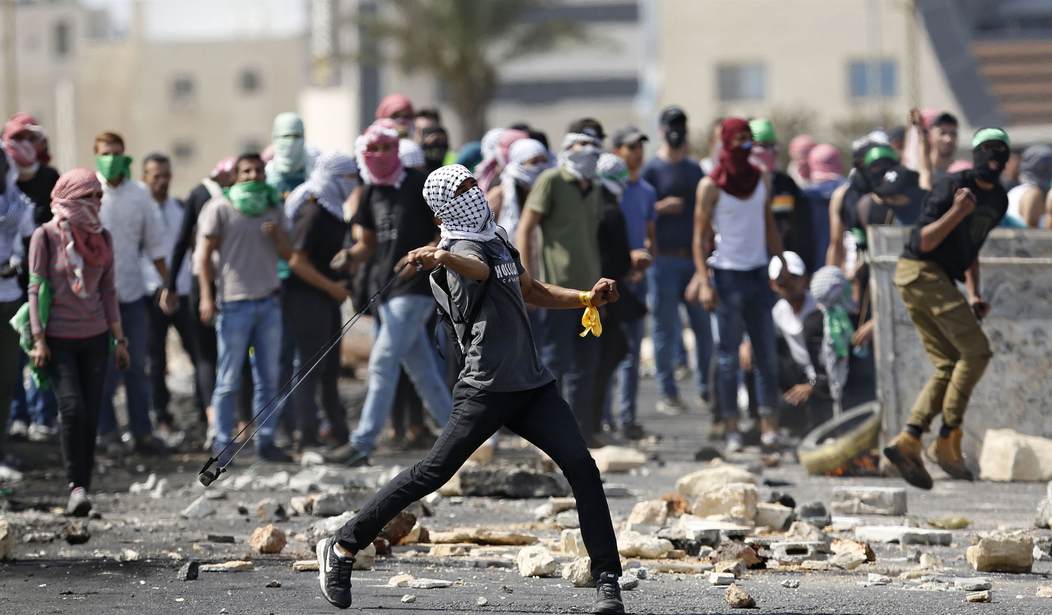After some delays and disagreements over terms, Hamas released 15 more hostages to Israel last night. More than 200 captives still remain in Gaza, so the “trickle” approach still appears to be the strategy that the terrorists are sticking with. (You can read a full list of the names of those that have been released here.) The truce is also holding in the Gaza Strip, with no new fighting or shelling being reported and more than 100 truckloads of aid arriving. How much of that will reach actual civilians and how much was immediately seized by Hamas is not known because Israel has also grounded its surveillance drones as part of the agreement. But that doesn’t mean that the fighting has ceased entirely. The action has now moved to the West Bank, where Palestinians have been attacking Israeli forces in scattered uprisings. The IDF killed at least eight Palestinians in the past day and fighting has broken out between Israeli West Bank settlers and neighboring Palestinians. The prospect of any sort of lasting peace still appears remote. (AP)
Israeli forces operating in the occupied West Bank killed at least eight Palestinians, including at least one militant, in a 24-hour period, Palestinian health officials said Sunday, as a fragile pause in fighting between Israel and Hamas in the Gaza Strip entered its third day.
Violence in the West Bank has surged in the weeks since Hamas attacked Israel on Oct. 7, setting off a devastating war in the Gaza Strip. Israeli forces have killed dozens of Palestinians and arrested hundreds in the West Bank. Jewish West Bank settlers have also stepped up attacks.
The Palestinian Health Ministry said that five Palestinians were killed in the militant stronghold of Jenin, while three others were killed in separate areas of the West Bank since Saturday morning. One of those killed, in al-Bireh in the central West Bank, was a teenager, the ministry said.
The majority of the unrest seems to be taking place in the Jenin Camp, located in central Israel near the northern end of the West Bank. The camp was established after the 1948 war as a refuge for Palestinians who were displaced from their homes by Israeli forces. Despite the fact that it was Hamas that invaded Israel on October 7, the Palestinians in the West Bank appear to be exhibiting their anger toward the Jews in a violent fashion in response to Israel’s clearing of the Gaza Strip.
The latest violence at the Jenin Camp took place as the IDF was executing an arrest warrant against a Palestinian man accused of killing an Israeli father and son at a car wash earlier this year. Five Palestinians were killed in the subsequent fighting. At least one of them was identified as a member of the Palestinian Islamic Jihad group. In the background, Israeli bulldozers were tearing up sections of roads and detonating land mines that the Palestinians had planted there.
Israel has enough on its hands in Gaza, so they clearly don’t need the Palestinians acting up in the West Bank. The longer this drags on, the more I find myself wondering how the situation can at least return to the way things were prior to October 7. Everyone keeps talking about a “two-state solution,” but it appears that the vast majority of Palestinians are only in favor of a one-state solution, with the Jewish state being removed. Foreign Affairs spoke to former Israeli head of security Ami Ayalon and asked him to describe the endgame. Even he doesn’t see a clear path in that direction.
Ami Ayalon says that today there is no clear picture in Israel about what happens on the day after—and that this is a grave mistake. Ayalon began his military service in 1963 and went on to lead Israel’s navy and then Shin Bet, the country’s internal security service.
The task for Israel, he argues, is not just addressing the security failures that preceded October 7, but offering a political future that both Israelis and Palestinians will support.
Ayalon speaks of “a political future” that can be supported by both Israel and the Palestinians, but he offers no specifics. He remains a leading proponent of the idea of getting rid of Netanyahu as the Prime Minister. but it’s difficult to see how that would fundamentally change anything. Bibi Netanyahu didn’t start this war, but he may be the only one with a sufficiently stiff spine to finish it. Convincing the Palestinians to return to Jordan en masse would be the ideal endgame, but it seems unlikely in the extreme that they would agree, even if Jordan was willing to take them all. It’s sad to admit, but there may be no end to all of this until there are no Palestinians left who are willing to fight.








Join the conversation as a VIP Member